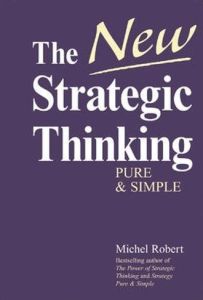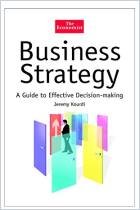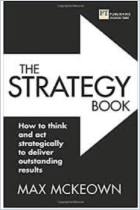Join getAbstract to access the summary!

Join getAbstract to access the summary!
Michel Robert
The New Strategic Thinking
Pure and Simple
McGraw-Hill, 2005
What's inside?
To develop a strategy for your business, you must learn to predict the future – without a crystal ball or tarot cards.
Recommendation
Author and consultant Michel Robert has tested his process for strategy development over the course of two decades of business experience. His method involves taking advantage of the overall knowledge of your company’s executives and involving them in developing strategy, turning them into stakeholders in the company’s future. His book is both a guide to the process and a collection of case studies of companies that have used this approach, ranging from insurance providers to heavy equipment manufacturers and developers of advanced weapons systems. Not surprisingly, Robert champions his proprietary process and often crosses the line into selling rather than teaching. Nevertheless, getAbstract finds that this can be a valuable handbook for the CEO who is considering how to set a strategic direction for growth.
Summary
About the Author
Michel Robert is a strategy consultant and founding partner of an international consulting firm. He is the author of Product Innovation and Strategy Pure & Simple: How Winning Companies Outpace Their Competitors.




















Comment on this summary